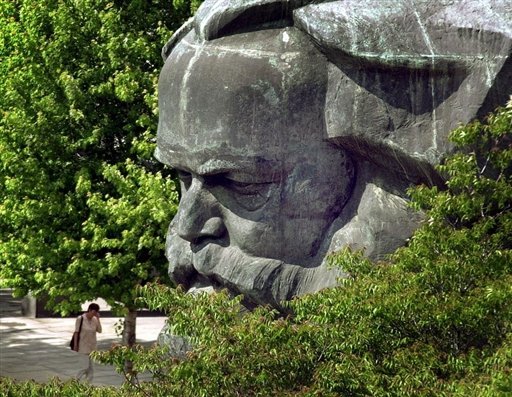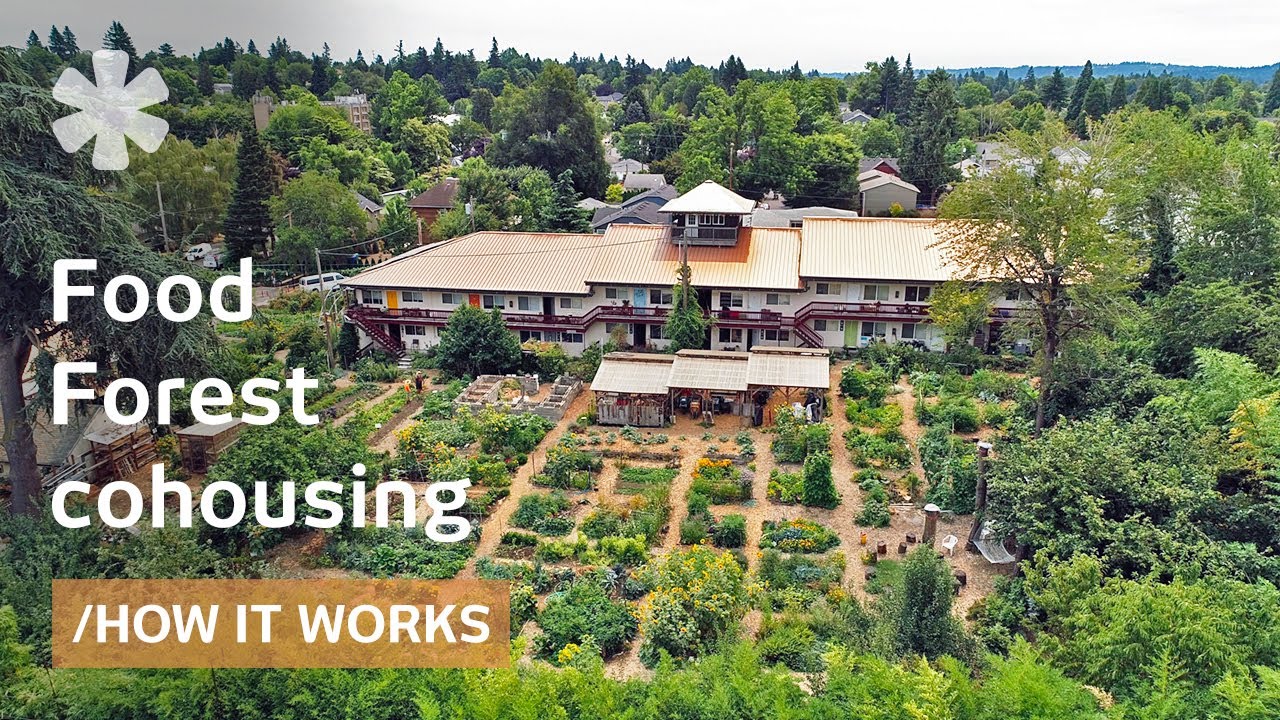Here, nearly everything is shared. There are two community electric cars - donated by the Erssons who no longer have a private car-, shared bicycles (and bike trailers), an extensive fruit orchard, berry and grape patches, and a considerable community garden space. Photovoltaics provide about two-thirds of the energy consumed by the complex. […] Rents here are lower than the Portland average because the Erssons want Kailash to be accessible to all income levels. There’s a 300-person waitlist, but Ole hopes others will follow their example.
“If you look at it from an economic perspective no business would want a complex landscape like this because it’s way too much maintenance, but what you have to do is turn the maintenance over to the residents, and then they do it: they get joy; it’s an antidepressant; it’s a way of creating food; it’s a way of creating community; so you have to do it in a certain way, but it’s definitely a lot more work than the typical grass and shrub landscape for sure.”


